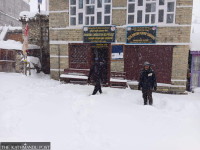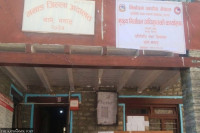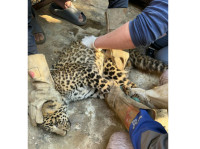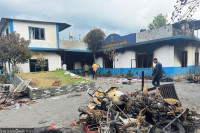Gandaki Province
Dalit women representatives in Pokhara say they continue to face discrimination
The representatives say they are disrespected by colleagues and are often relegated to the sidelines.Deepak Pariyar
In April 2018, ward representatives of Pokhara Metropolitan City launched a programme to distribute school uniforms to Dalit students in the city.
The distribution was scheduled to take place the same month, and Mandira Pariyar, a
member of ward 15 and also the programme coordinator, was looking forward to participating.
Pariyar, along with other women representatives from the Dalit community, however, had to leave on a tour of Province 5 for a different official programme. The plan was to begin distribution of the uniforms after their return.
Despite the change in plans, Prakash Paudel, the ward chair did not wait for the women’s return and went ahead with the distribution programme.
According to Mandira, this is just one among many instances that show how Dalit representatives continue to be mistreated by other elected representatives.
“Our colleagues, both senior and junior, do not extend us the same respect they do to our non-Dalit colleagues,” said Pariyar. “While Paudel addresses our non-Dalit representatives as “tapai” (the formal way of addressing someone with respect), he calls us “timi” (an informal way of addressing someone, especially those younger to you).”
Denying that his action had anything to do with caste-based discrimination, Paudel told the Post: “The programme was more important than the representatives, so I carried it out as soon as I could.”
When elected Dalit representatives themselves face mistreatment for belonging to the community, there is little possibility that other community members are treated any better, said Tara.
Dalit representatives across the city say they have experienced prejudiced behaviour from their colleagues. They complain that they’re called on to resolve conflicts, are given trivial roles and kept away from important decision-making processes.
“Dalit women are always assigned difficult tasks,” said Bishnu Bishwakarma, member of ward number 3. “We are brought in to settle quarrels and resolve conflicts, while non-Dalit representatives simply spend their time attending different programmes as guests of honour.”
Even male representatives say they have had to bear the brunt of caste-based discriminations.
“Dalits are still not regarded as equals and their competence is often questioned,” said Dhan Bahadur Nepali, chairperson of ward number 5, who is also the spokesperson of the metropolitan city, adding, “Social change takes time, but we need to reform how an individual thinks and behaves.”
Harimaya Bishwakarma, a member of ward number 5, said even within the Dalit community there’s discrimination against elected women representatives.
“Dalit men are jealous of Dalit women; they are especially cynical towards elected women representatives from the community. They think we have replaced them in politics,” said Bishwakarma.




 13.12°C Kathmandu
13.12°C Kathmandu.jpg)











